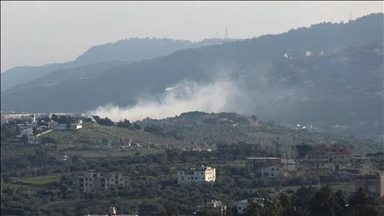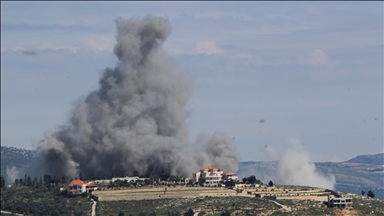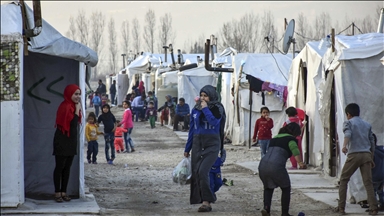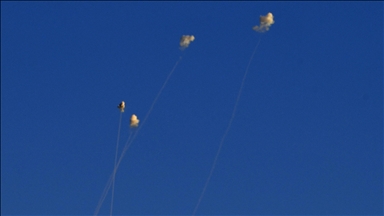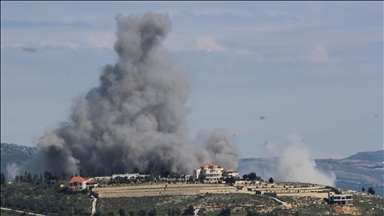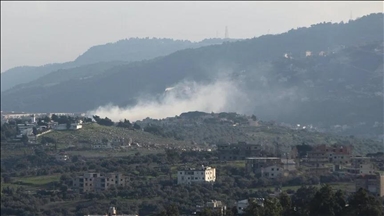Lebanon lauds election of president after 2-year hiatus
Celebrations erupt in Beirut after Aoun is named Lebanon’s 13th president, ending two-and-half-year presidency vacuum
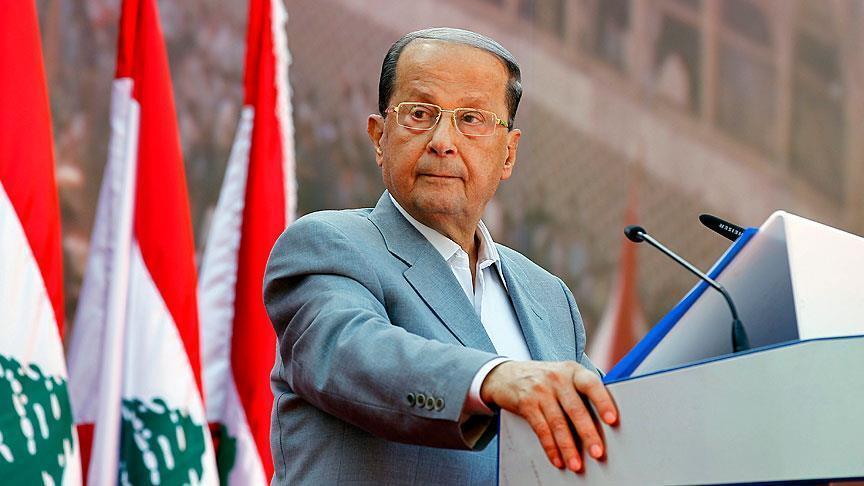 Lebanon's newly-elected president Michel Aoun
Lebanon's newly-elected president Michel Aoun
Beyrut
By Asmaa al-Braidi
BEIRUT
Celebrations erupted in Lebanon on Monday minutes after the announcement that Michel Aoun had been chosen by parliament as the country's 13th president, ending a presidential vacuum that had lasted more than two and a half years.
Celebrations were seen in Beirut’s Christian-majority Keserwan and al-Ashrafiya districts; in Haret Hreik, a Hezbollah stronghold in the city’s southern suburbs; and in the town of Zahle in the eastern Bekaa Valley region.
In the streets of Beirut, people waved banners of Lebanon’s Free Patriotic Movement (FPM) -- which is headed by Aoun, a Maronite Christian -- and Lebanese national flags.
Chanting slogans and national songs, hundreds of FPM supporters gathered in the city’s public squares to celebrate the election of Aoun, who was speedily sworn in as the country’s president.
Aoun was elected president of the republic on Monday after clinching the votes of 83 out of the 127 MPs who attended the parliamentary vote session.
A total of 36 MPs voted against the move by casting blank ballots, while another eight spoiled their votes.
Aoun’s victory came in the second round of polling -- which required a 50-percent+1 (65-deputy) majority -- after failing to win a first-round vote that required the support of two-thirds of the assembly (at least 86 deputies).
'Difficult time'
After taking the oath of office before parliament, Aoun declared: "I have been elected at a difficult time, when the Lebanese people are hoping to achieve a degree of security and stability ".
Vowing to bring the country into a "new phase" and pursue the fight against government corruption, Aoun also stressed his commitment to the 1989 Taif Agreement, which ended Lebanon’s 15-year civil war.
"The stability of Lebanon can only be achieved by respecting the constitution," he said. "And it must be based on national consensus."
"Even though Lebanon is situated in a troubled area, it remains untouched by the fire," he added. "Our priority is to prevent any spark from setting our country alight."
He went on: "We will work to keep Lebanon far from external conflicts, adopt an independent foreign policy, and show respect for international law."
What’s more, Aoun said, Lebanon under his leadership "will spare no effort to liberate the [Lebanese] territory still occupied by Israel".
As for the scourge of terrorism, he said: "We will preemptively deal with all aspects of terrorism with a view to deterring -- and completely eliminating -- the phenomenon."
"Lebanon will also continue to cooperate with the UN and other relevant parties to address the issue of the refugee flow from Syria," Aoun said.
"We don’t want these camps [set up in Lebanon for Syrian refugees] to become sources of potential instability," he added. "This can only be assured by providing for the rapid return of Syrians to their country."
"No solution to the Syria conflict will be viable if it doesn’t include the return of refugees to their homes," Aoun asserted.
With regard to Palestinian refugees in Lebanon, the new president said: "We always do our best to affirm the right of Palestinians to return to their homeland."
Before Aoun’s election on Monday, Lebanon’s presidency had remained vacant since former President Michel Suleiman left office in May of 2014.
Since then, 45 attempts by parliament to elect a new head of state ended in failure, with MPs affiliated with the pro-Syria/Iran March 8 Alliance boycotting the vote, thus preventing the required two-thirds quorum.
'Opportunity'
The U.S. State Department, for its part, hailed Aoun's election as a "moment of opportunity" for Lebanon.
"The United States will continue to stand shoulder to shoulder with the Lebanese people and support Lebanon’s independence, sovereignty, security and stability," State Department spokesman John Kirby said in a statement.
Lebanon’s political forces remain sharply divided between supporters of the March 14 alliance -- which backs the armed opposition in next-door Syria -- and the March 8 alliance, which includes Hezbollah and supports Syria’s Assad regime.
A third, centrist bloc, meanwhile, is led by Druze politician Walid Jumblatt and former Prime Minister Najib Mikati.
In 1943, Lebanon’s Muslims and Christians agreed to distribute the country’s three most important political posts between them.
Ever since, according to an unwritten National Charter that remains in effect until today, the president (who serves for non-renewable six-year terms) should be a Maronite Christian; the prime minister a Sunni Muslim; and the speaker of parliament a Shia Muslim.
Anadolu Agency website contains only a portion of the news stories offered to subscribers in the AA News Broadcasting System (HAS), and in summarized form. Please contact us for subscription options.


